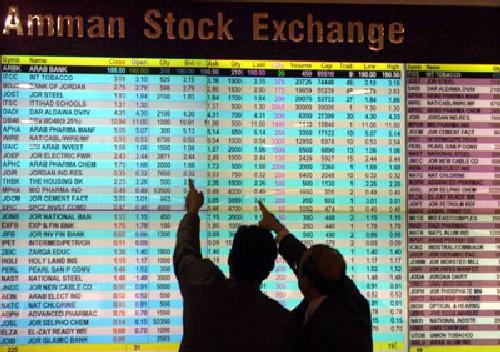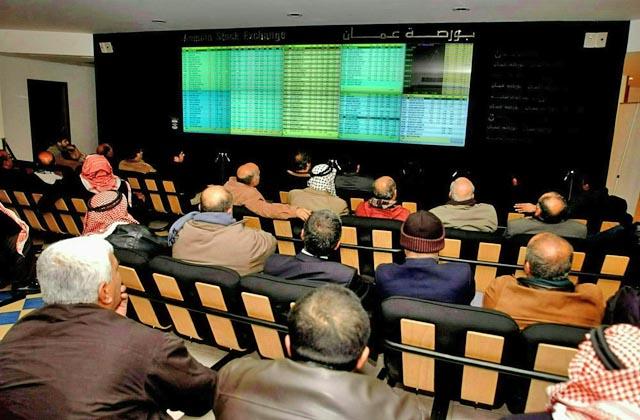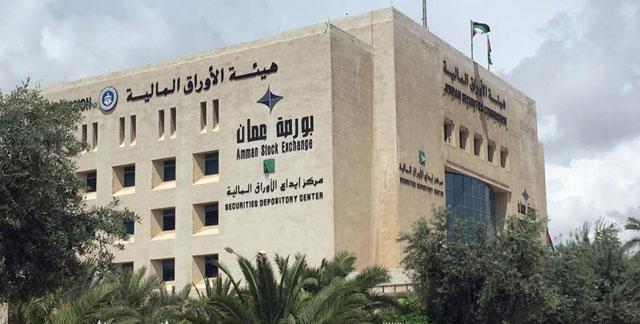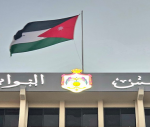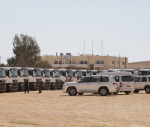AMMAN –– 2014 is excepted to be a promising year for the Amman Stock Exchange (ASE) as the growth seen last year is likely to gain momentum, according to the market chief.
Nader Azar, acting chief executive officer of the ASE, told The Jordan Times in a recent interview that the bourse is set for faster recovery to pre-global 2009 financial crisis levels after the price index closed 5.5 per cent higher in 2013.
“I’m very optimistic that the ASE performance will pick up this year, which will be more stable in terms of prices and trading volumes,” Azar said, stressing that the Kingdom’s stock market was attractive for non-Jordanian investors in 2013.
Trading at ASE reached around JD3 billion last year compared to JD2 billion the year before, Azar indicated.
According to the ASE report, the total value of shares bought by non-Jordanian investors last year reached JD939.5 million, almost triple the JD322.9 million recorded in 2012.
ASE figures show that non-Jordanian purchases last year represented around 31 per cent of overall trading at the bourse, with the value of shares sold by foreign investors amounted to JD792.6 million.
In 2012, the value of shares bought by non-Jordanians represented 16.3 per cent of overall trading, while the shares sold were worth JD285.3 million.
Noting that market capitalisation was JD18.5 billion by the end of last year, Azar indicated that non-Jordanians own nearly 50 per cent of the market capitalisation.
He said that over the past 15 years, non-Jordanian bought shares in the stock market for long-term investments, emphasising that ASE remained attractive for non-Jordanian investors despite political instability in neighbouring countries.
“These capital inflows are here to stay for a long term as strategic investments,” Azar stated, adding that non-Jordanians are board members in a number of shareholding companies.
Out of the 50 per cent of shares owned by non-Jordanians, Azar pointed out that 35 per cent of ASE shares are investments by Arab governments, sovereign and different investment funds and wealthy families, while the remaining 15 per cent is owned by foreign investors from over 100 countries.
According to the ASE, purchases of Arab investors in 2013 stood at JD818.5 million, or 87.1 per cent of the overall purchases by non-Jordanians, while the value of non-Arab purchases amounted to JD121 million, constituting 12.9 per cent of the total purchases.
Sales by Arab investors amounted to JD693.2 million, 87.5 per cent of the total sales by non-Jordanians, while the value of non-Arab sales stood at JD99.4 million, representing 12.5 per cent of the total sales by foreigners, the data revealed.
Non-Jordanian ownership in companies listed on the ASE by the end of 2013 represented 49.9 per cent of the total market value, 35.5 per cent for Arab investors and 14.4 per cent for non-Arab investors.
At the sector level, foreign ownership in the market capitalisation of listed companies at the end of last year reached 54.9 per cent for the financial sector, 30.5 per cent for the services sector and 52.3 per cent for the industrial sector, according to the ASE.
Azar attributed the increasing demand for shares by non-Jordanians to attractive low-price shares, “good dividend yield”, political stability of Jordan and the securities regulations that protect investors rights.
“Both Jordanian and no-Jordanian investors are treated on equal footings,” Azar remarked.
Azar concluded that stock markets in other Arab countries, mainly Gulf region, demonstrated better recoveries than the ASE, because of the improved fiscal performance in those countries.

